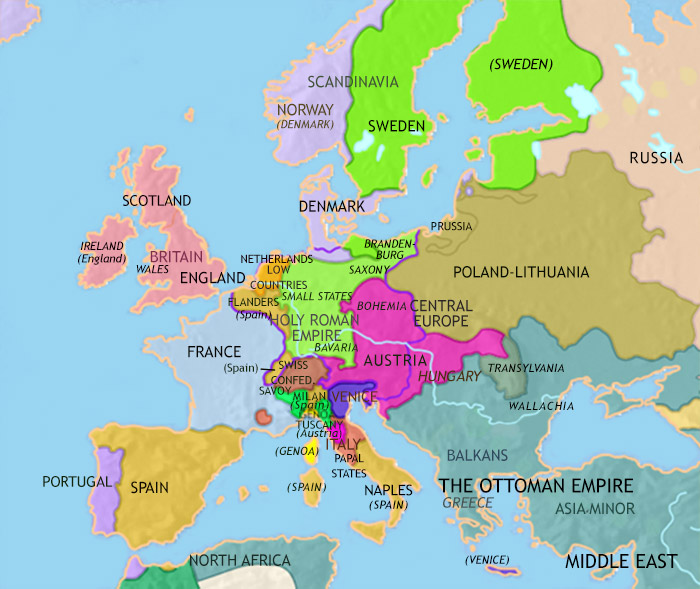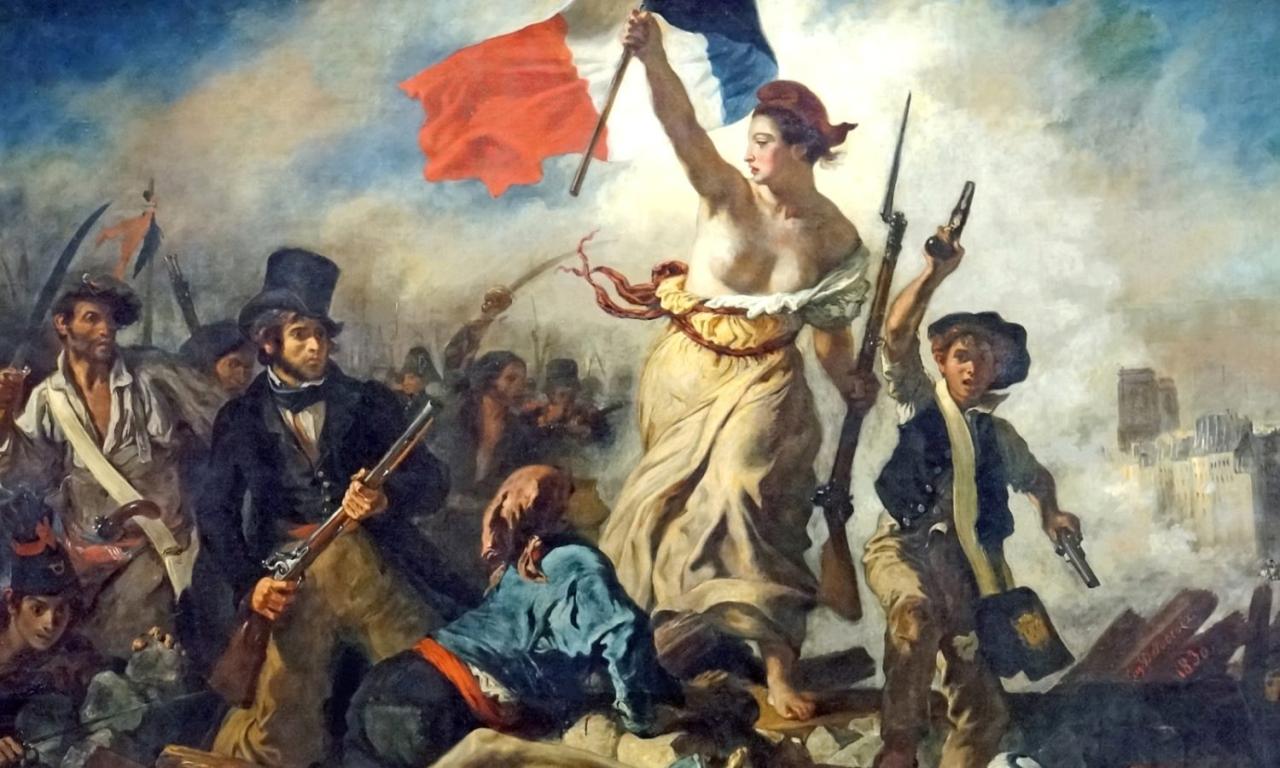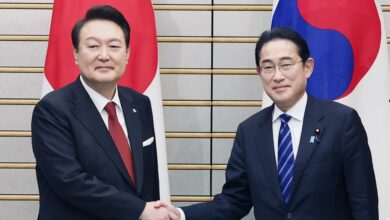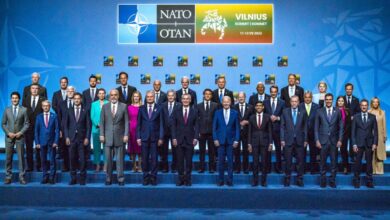
Europe Faces a New Age of Shrunken French Influence
Europe Faces a New Age of Shrunken French Influence. It’s a bold statement, right? But as we delve into the shifting economic, political, and cultural landscapes of Europe, it becomes increasingly clear that France’s once-dominant position is facing unprecedented challenges. From economic competitiveness to its role on the world stage, we’ll explore the factors contributing to this decline and consider what the future might hold for France’s influence in Europe and beyond.
This isn’t just about numbers and statistics; it’s about the changing dynamics of power and the evolution of a nation’s identity.
We’ll examine France’s economic performance compared to its European neighbors, analyzing the impact of globalization and technological advancements. We’ll also explore the changing political landscape within the EU, looking at key policy areas where French influence has waned and the implications of recent political events. Beyond economics and politics, we’ll consider the enduring power of French culture and its adaptability in a digital age, comparing its global reach to other European nations.
Finally, we’ll touch upon the geopolitical challenges facing France and the EU, examining its role in international organizations and the evolving strategic landscape.
Economic Shifts in Europe

France, a cornerstone of the European Union, is currently navigating a complex economic landscape. While possessing significant strengths, including a highly skilled workforce and a diverse economy, it faces considerable challenges that are impacting its relative standing among other major European powers. Understanding these shifts is crucial for comprehending the evolving dynamics of the European Union as a whole.
The Current State of the French Economy and Key Weaknesses
The French economy, while generally stable, suffers from persistent structural weaknesses. High levels of public debt, a rigid labor market, and relatively low productivity compared to its competitors are significant concerns. These factors contribute to a less dynamic and competitive economy, hindering growth potential and impacting the country’s ability to adapt to global economic changes. Furthermore, a high tax burden on businesses can stifle investment and entrepreneurship, further hindering economic dynamism.
Europe’s shifting geopolitical landscape sees France’s influence waning, a trend impacting everything from trade deals to cultural exports. Navigating this change requires strategic thinking, and that’s where leadership comes in; I found myself pondering the implications while reading this insightful article on four questions for every manager to ask themselves , which really made me think about how these questions apply to international relations too.
Ultimately, understanding how to adapt to this new reality will be key for Europe’s future, and strong leadership is essential.
Recent reforms aimed at addressing these issues have yielded mixed results, highlighting the complexity of the task ahead.
Comparison of Economic Performance with Other Major European Powers
The following table provides a comparison of France’s economic performance with Germany, the UK, and Italy over the last five years (data approximated from various sources, including the OECD and Eurostat; precise figures may vary slightly depending on the source and methodology). Note that this is a simplified comparison and does not encompass all relevant economic indicators.
Europe’s facing a shift in global power dynamics, with France’s influence seemingly waning. It’s a fascinating contrast to the robust domestic political maneuvering happening across the Atlantic, as seen in the recent Republican National Committee gathering – check out this article on trump and vance at the rnc for a glimpse into that world. This internal US focus further highlights the changing international landscape and how Europe’s traditional power structures are being reshaped.
| Country | Average Annual GDP Growth (2018-2022) | Average Annual Unemployment Rate (2018-2022) | Average Annual Inflation Rate (2018-2022) |
|---|---|---|---|
| France | 1.5% | 7.5% | 1.8% |
| Germany | 1.8% | 3.5% | 1.5% |
| UK | 1.2% | 4.0% | 2.2% |
| Italy | 0.8% | 9.0% | 1.2% |
Impact of Globalization and Technological Advancements on French Economic Competitiveness
Globalization and rapid technological advancements present both opportunities and challenges for France. While increased access to global markets can boost growth, it also exposes French businesses to greater competition. The adoption of new technologies, particularly in areas such as artificial intelligence and digitalization, is crucial for maintaining competitiveness. However, France faces challenges in fostering innovation and attracting investment in these sectors.
Europe’s facing a shift in power dynamics, a new age where French influence feels noticeably smaller. This comes at a time when global stability is already precarious, as evidenced by Putin’s renewed threat to develop previously banned missiles if the US does the same – check out this article for the details: putin again threatens to develop previously banned missiles if us does.
This escalating tension only further complicates the already complex picture of a diminished French role in Europe’s future.
A skills gap, coupled with bureaucratic hurdles, can hinder the successful integration of new technologies into the economy. This necessitates targeted investments in education and training, alongside regulatory reforms to encourage innovation.
The Role of French Businesses in the European Union’s Single Market and Challenges Faced
French businesses play a significant role within the EU’s single market, benefiting from free movement of goods, services, capital, and people. However, they also face challenges in navigating the complexities of a unified market. Regulatory differences between member states, competition from other EU businesses, and language barriers can pose significant hurdles. Furthermore, the impact of Brexit and the ongoing geopolitical uncertainties within the EU have added further complexity to the operating environment for French businesses seeking to expand within the single market.
Adapting to these challenges and leveraging the opportunities offered by the single market remains crucial for the continued success of French businesses.
Geopolitical Landscape: Europe Faces A New Age Of Shrunken French Influence

France’s influence in Europe, while undeniably significant, is navigating a complex and shifting geopolitical landscape. The rise of new global powers, evolving regional dynamics, and persistent internal challenges within the European Union are all contributing factors to a recalibration of France’s strategic position. This necessitates a closer examination of the key geopolitical pressures France faces and how it is adapting its foreign policy initiatives in response.The changing geopolitical landscape presents numerous challenges to France’s strategic interests.
The traditional bipolar world order has given way to a multipolar system, characterized by the increasing influence of non-European actors, such as China and Russia. This increased competition for resources, influence, and global leadership has forced France to adapt its foreign policy to a more nuanced and multi-faceted approach. Simultaneously, the EU itself faces internal divisions and external pressures that directly impact France’s ability to project its influence effectively.
Energy Security Challenges
The dependence of many European nations, including France, on Russian energy supplies has been dramatically exposed by recent geopolitical events. This vulnerability has highlighted the need for diversification of energy sources and the strengthening of energy security partnerships within the EU and beyond. France is actively pursuing nuclear energy independence, while also exploring collaborations with other nations to reduce reliance on potentially unreliable or politically motivated energy providers.
This includes investing in renewable energy sources and strengthening alliances with energy-rich countries. The impact of this energy vulnerability is far-reaching, affecting not only economic stability but also national security and foreign policy priorities.
Migration and Security Threats
The ongoing migration crisis continues to pose a significant challenge for France and the EU. Managing the influx of migrants, ensuring their integration, and addressing the security concerns associated with uncontrolled migration require coordinated efforts among member states. France has been at the forefront of efforts to address this issue, both through bilateral agreements with countries of origin and through its participation in EU-wide initiatives.
However, differing national approaches and the sheer scale of the challenge create ongoing tension and require continuous diplomatic negotiation. Furthermore, security threats from terrorism and organized crime further complicate the geopolitical landscape, necessitating increased cooperation and resource allocation within the EU framework.
France’s Foreign Policy Initiatives
France’s foreign policy has been noticeably affected by the evolving geopolitical environment. The increased assertiveness of Russia and China has led France to strengthen its alliances within NATO and the EU, while also pursuing independent initiatives in regions of strategic importance. For example, France’s engagement in the Sahel region of Africa reflects a commitment to counter-terrorism and regional stability, while its diplomatic efforts regarding the Iran nuclear deal demonstrate its commitment to multilateral diplomacy.
However, these initiatives often require delicate balancing acts, given the competing interests and priorities of various international actors.
France’s Role in International Organizations
France plays a prominent role in key international organizations such as NATO and the UN. As a permanent member of the UN Security Council, France wields considerable influence in global security matters, often advocating for multilateral solutions to international conflicts. Its membership in NATO reflects a commitment to collective defense and transatlantic security. However, France’s independent foreign policy approach, particularly its emphasis on strategic autonomy, occasionally leads to tensions within these alliances, requiring careful navigation of differing national interests and priorities.
The maintenance of these complex relationships is crucial to France’s continued global influence.
Demographic Trends and Social Issues
France, like many developed nations, is grappling with significant demographic shifts that are reshaping its economic and political landscape. These trends, characterized by an aging population, declining birth rates, and evolving immigration patterns, present both challenges and opportunities for the country’s future, impacting its role within the European Union and beyond. Understanding these dynamics is crucial to comprehending France’s evolving influence on the continent.
Aging Population and Declining Birth Rates
France’s population is aging rapidly, with a decreasing birth rate and an increasing proportion of elderly citizens. This demographic shift places a considerable strain on the social security system and healthcare infrastructure. The shrinking workforce necessitates reforms to ensure the sustainability of pension systems and the provision of adequate care for the elderly. For example, the increasing dependency ratio (the ratio of retirees to working-age individuals) necessitates innovative solutions, such as incentivizing later retirement ages or reforming pension calculations.
Furthermore, the declining birth rate contributes to a smaller future workforce, potentially hindering economic growth and competitiveness. This necessitates policies aimed at supporting families and encouraging higher birth rates, such as subsidized childcare or parental leave.
Immigration and Integration
Immigration plays a significant role in mitigating the effects of France’s aging population and declining birth rate. However, integrating immigrants into French society presents ongoing social and political challenges. Successful integration requires effective policies addressing language acquisition, access to education and employment, and combating discrimination. Failure to address these challenges can lead to social fragmentation, economic inequality, and political polarization.
Recent examples include debates surrounding the integration of Muslim communities and the rise of populist political movements that exploit anxieties related to immigration. Successful integration strategies require a multifaceted approach, encompassing investment in language training programs, job placement services, and community outreach initiatives aimed at fostering social cohesion.
Demographic Shifts in France (1993-2023)
| Year | Birth Rate (per 1,000) | Life Expectancy (Years) | Net Migration (thousands) |
|---|---|---|---|
| 1993 | 13.0 | 76.5 | 30 |
| 2003 | 12.0 | 78.2 | 75 |
| 2013 | 12.5 | 82.0 | 100 |
| 2023 | 11.5 (estimated) | 83.0 (estimated) | 150 (estimated) |
Note
These figures are estimates and may vary depending on the source. Data from official sources such as INSEE (Institut national de la statistique et des études économiques) should be consulted for precise figures.
Potential Solutions to Address Demographic Challenges, Europe faces a new age of shrunken french influence
Addressing France’s demographic challenges requires a comprehensive and multi-pronged approach. This includes implementing policies to encourage higher birth rates, such as expanding access to affordable childcare and parental leave; reforming pension systems to ensure their long-term sustainability, possibly by gradually raising the retirement age; and investing in education and training to equip the workforce with the skills needed for a changing economy.
Moreover, effective integration policies are crucial to harness the potential contributions of immigrants while mitigating potential social tensions. This includes investment in language training, job placement services, and programs aimed at promoting social cohesion and understanding between different communities. Finally, promoting diversity and inclusion in all aspects of French society is essential to building a more equitable and prosperous future.
So, is the age of dominant French influence truly over? Not necessarily. While the evidence suggests a significant shift in power dynamics, France retains considerable cultural soft power and a crucial role in European affairs. The future of French influence hinges on its ability to adapt to changing economic realities, navigate complex geopolitical challenges, and maintain its cultural relevance in a globalized world.
The story is far from over; it’s a dynamic narrative still unfolding, and one that demands our continued attention.






